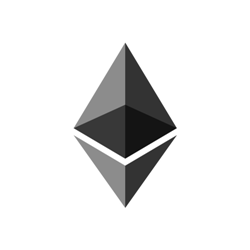Ethereum for Scam-Free Gambling?

Just how fair is online gambling? Well, it depends on who you ask. Gambling regulators, for instance, state that regulated sites operate fairly, and that the safety measures they are obliged to put in place are there to protect gamblers from unscrupulous sites that might otherwise try to unfairly stack their games against gamblers. Regulations that require a company to keep its player’s money separate from their operating funds are also intended to protect consumer’s in the event that an operator goes out of business.
Restricting Successful Gamblers
But not everyone is convinced that online gambling is fair, even in a regulated system. Some argue that online casinos and sports books still have the ability to manipulate the system, and there is some evidence to support these claims. For example, in March, UK and Irish gambling sites saw a huge increase in bets on the Cheltenham races, but winnings surprisingly did not skyrocket. This has led to speculation that as gambling increasingly moves online, sites are using sophisticated software to limit successful gamblers and decrease their winnings.
Decentralized Virtual Currency
Those who argue that online gambling as it currently exists is wrought with scams are likely proponents of Ethereum, a new type of online gambling that uses blockchain technology. While the inner workings of the network are complicated, basically, the platform allows developers from all over the world to create games. Every game is evaluated and those found to be completely fair are made available for players. The idea behind this is that players can trust that whatever they are betting on has fair odds and is free of scams.
No Mixing Operating and Player Funds
Another major difference between online gambling on standard sites and Ethereum is how currency is managed. Instead of depositing funds into an account and making bets using real money, players use virtual currency to place wagers. The virtual currency is then redeemed out of players’ online electronic wallets, and as a result, players do not have to worry about online operators co-mingling their funds and using them to cover operating expenses.
Ethereum Gambling Sites
A number of casino sites using Ethereum have emerged, including the Russian based DAO.Casino and also vDice.io, which are currently in their testing phases with a limited number of players signing on to evaluate their interfaces. Both sites are reportedly doing well with what they have dubbed as “Scam free” online gambling over the Ethereum platform. The sites promise full transparency and a completely safe gambling experience that they claim allows players to fully focus on the fun of the games.
So will Ethereum soon be the biggest trend in online gambling? Not likely. While the sites are moving forward with testing, it’s not clear how they would enter the global regulated gambling market. Regulators simply aren’t prepared to issue licenses to sites like DAO.Casino and Vice, as their operating methods and systems are completely outside of the current framework of regulations.
Moreover, regulators do not seem to have a sense of urgency or any real interest in considering how these sites may be regulated. Instead, most regulators argue that gambling scams are not a widespread problem, and that scams are isolated to only unscrupulous unregulated sites which should be avoided in place of legal sites regulated by their respective governments.
Speculating on Ethereum
Ethereum’s blockchain was launched in July of 2015, and until January 2016 was priced below the $2 mark. By the beginning of February it then doubled in price, and by June was trading at nearly $15. It wasn’t until the end of February of 2017, however, that the virtual currency really began to take off, before reaching a peak of round $53 towards the end of March.
During the first week of April, Ethereum’s price then plunged by over 18%, but has since recovered to its present price (4/14/17) of $47.19. In the meantime, Bitcoin, is showing a price of $1,186, with analysts pointing to an inverse relationship between the the world’s two biggest virtual currencies. Currently, Bitcoin has a market capitalization of $19 billion, followed by Ethereum ($4bn), and then a way back by Ripple ($1.3bn) and Litecoin ($500m).










